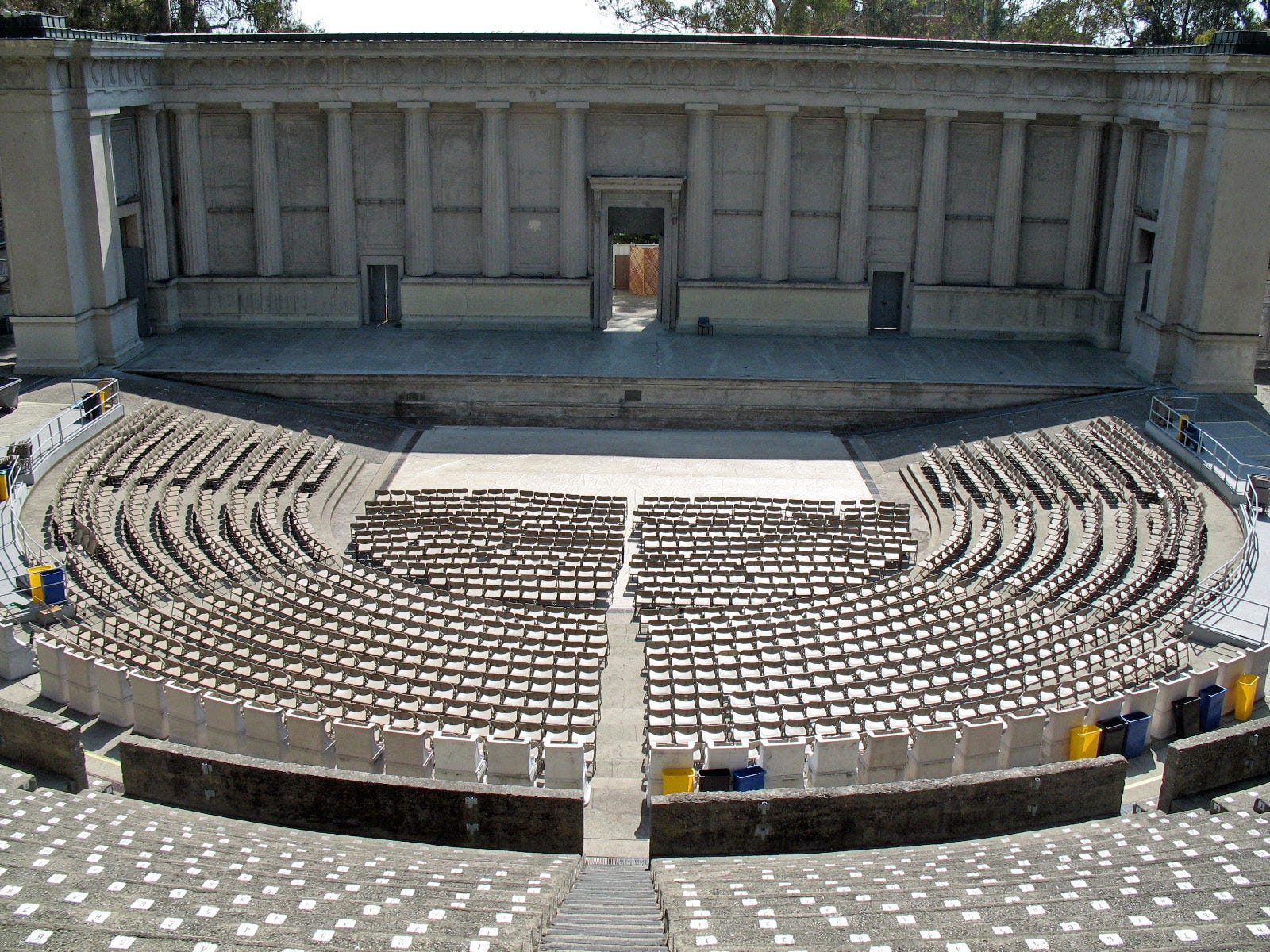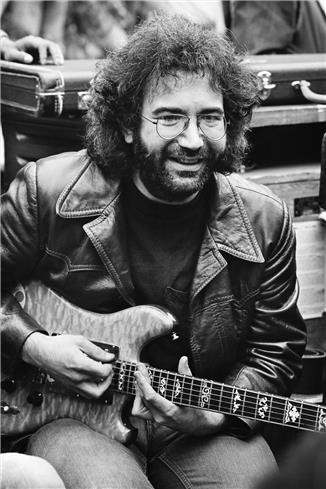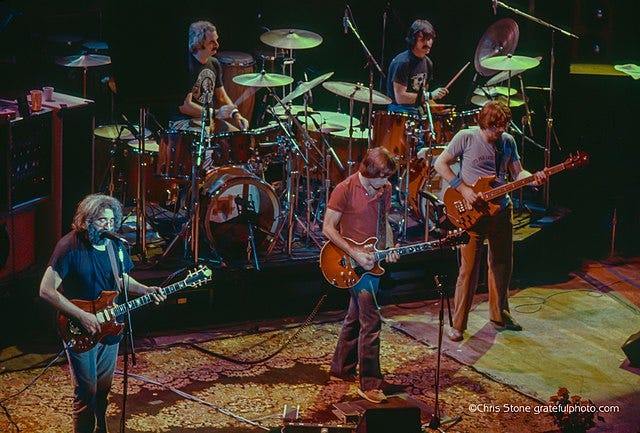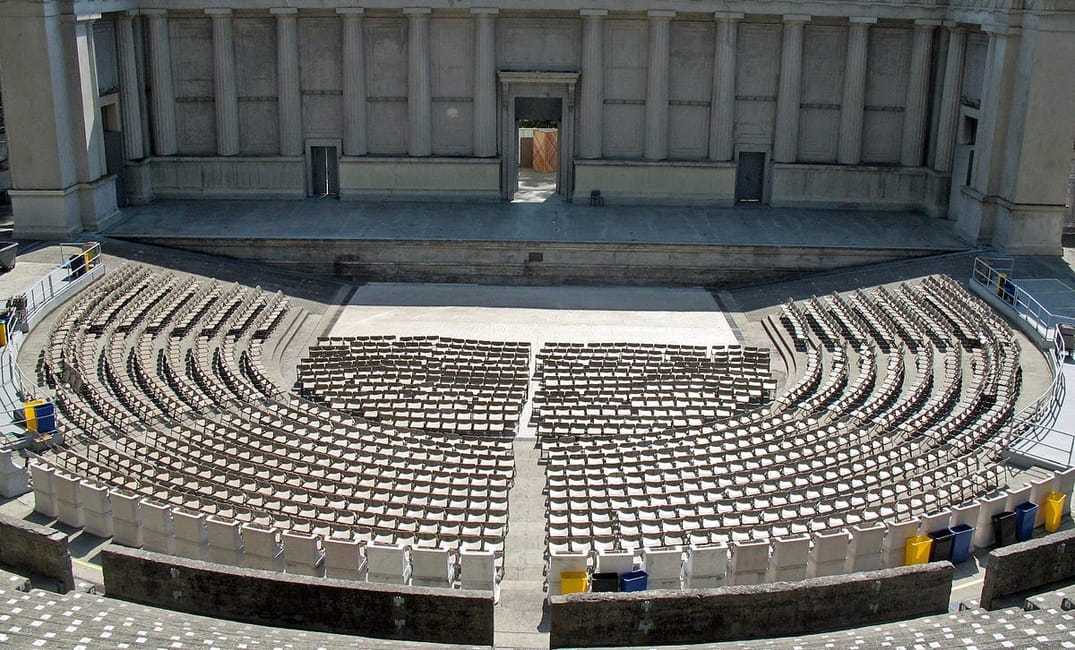
I moved into the high rise dorms at Berkeley in fall 1980, took the elevator to my new room on the seventh floor of Freeborn Hall, and noticed two things: my two new roommates and I had a spectacular view, looking out toward San Francisco Bay with the outline of the Golden Gate Bridge in the distance; and one of my roommates, absent at the moment, seemed to have very eccentric tastes.

This roommate — who had been kicked out of Choate for dealing, I later found out—had set up an odd sort of altar, box after box of cassette tapes rising upward, each plastic tape box marked with place names and dates and some other scrawl I could not decipher. Cornell 5/7/80? Boulder 6/8/80? I honestly had no idea. More scrawl contained words I made out, but did not fathom: “Uncle John’s>Playin’>Uncle John’s” and “Musta Binda Roses.” Binda? What?
Had I at that point even heard of a band called the Grateful Dead? I believe not. I’d been a math-and-science geek for years, and enrolled at UC to earn my Ph.D. in theoretical astrophysics. I was familiar with odd obsession; I could recite, at that point, the name of every moon in the solar system.
The tapes in those boxes, bootleg Dead recordings, blew my mind. The ensuing personal earthquake was enough to help turn me into not an astronomer, but a writer and reporter, and it was the three shows at Berkeley’s Greek Theater in September 1981, one year after I’d arrived from San Jose, that provided the key detonation.
My education in the world of the Dead started with various prep school friends of my Deadhead roommate, Michael, whose father was a Reagan appointee to the Justice Department. Our little dorm room was already tight quarters, with three of us wedged in there, but various lively personalities popped in all the time, often crashing with us, especially during a series of fifteen concerts at the Warfield Theater in San Francisco that first fall.

I was Nick Carraway to Michael’s Gatsby at times, mesmerized by the glamour and sheer bravado of the talk that filled the room, these children of East Coast privilege who had put so much into developing their raps, post-Beat, post-Neal-Cassady torrents of words, and sly takes, a style that came back to me when I caught Cameron Crowe’s great “Almost Famous.” Michael tried to hustle me at backgammon, and I got better than him and won the (Polo) shirt right off his back.
I was pulled from physics to storytelling by this cast of oddly seductive characters with stories to tell and a love of spinning a yarn. I at first found it ludicrous of them to insist, as they did, that they could listen to ten different versions of a single Dead song and see variety and nuance and contrast in everyone. It was a statement on life, a belief in the power of the miraculous to break through every day, like a ray of sun poking through a bank of Cumulonimbus. Up to then, I was more of a Boston/“More Than a Feeling” guy. I came around that year, the three Dead shows in Berkeley forty years ago this weekend sealing the deal, the first coming on Sept. 11, 1981, exactly twenty years before the Twin Towers fell.
The main star of that weekend’s shows was Berkeley weather in September and the majestic expanse of an outdoor theater, which was built in 1903 to resemble the ancient Greek theater of Epidaurus. The theater sits at the high end of the UC Berkeley campus, like the campus football stadium nearby, with a killer view and the swirling Berkeley Hills winds that could feel like an invigorating slap in the face.
Even outside the theater, the energy level was high and inside a deep current of excitement and delight had everyone I saw smiling.
Look, I’m not here to try to convince anyone to like a particular kind of music. The day before that first September 1981 Greek show, the Sacramento Bee published a grumpy review of a Jerry Garcia Band gig, saying it lacked “zip” and “zest.” One man’s opinion. For many of us that weekend, the Dead were “boosters of bliss,” as Aoife Chaney put it in a recent Medium piece.
For those of us charmed by Jerry and his aw-shucks stage presence, juxtaposed with the furiously inventive guitar work, all against a backdrop of one big happy family celebrating a (long) holiday together, those three Greek shows captured some crucial spark. Something about the sound quality in a bowl-shaped amphitheater on the edge of the Berkeley Hills gave the music added hop, like when the band opened with “Minglewood” Friday night and there was an extra crackle to Jerry’s first solo, like the sound of your car battery sparking at you when you scrape the positive and negative terminals with the leads on jumper cables.
Bob Weir still had a lot of the bouncy kid-brother energy of earlier years, but his rhythm guitar work was consistently sharp and intriguing that weekend, like on one Friday night Mama Tried/Mexicali Blues, and the two drummers and bassist Phil Lesh carved out a wide, at times careening groove.
I think it was during “Althea” Friday night that I had the feeling of Jerry’s guitar being in one of those moods where it was going to make sure you listened a little extra closely. “Honest to the point of recklessness,” Jerry sings, “self-centered to the extreme,” and lulls into a high-arching little guitar solo he pulled home with surprising restraint.
Maybe he was saving up for the energetic rendition of “Franklin’s Tower,” more uptempo than normal, with Garcia guitar work that had my friends Pete Danko and Robert Firth and I shaking our heads then and many, many times since. Brent Mydland, still newish to the band but settling in, was superb on the keyboard. “If you get confused, listen to the music play,” Jerry sang, and then played.
I do remember the “Morning Dew” that night blowing my mind and feeling like it lasted about an hour, which I meant as a compliment, truly an epic experience. The wistful melancholy — “I guess it doesn’t matter anyway” — always struck me as perfect for heartrending Garcia guitar excursions.
On Saturday, standing down in front, maybe twenty rows back from the band, I loved the expectant pause after an especially fun, rollicking China/Rider. I would go on tour a year later to see as many concerts as I could because I’d read Kerouac and wanted to hit the road. I loved soaking up a face showing you something in a corner of a dive in a part of the country you’re seeing for the first time, and I loved that electric energy of an alert Dead crowd trying to hear the next song coming, often with the band sending a few false signals just for fun.
Next up was “Scarlet Begonias” into “Fire on the Mountain,” then and now one of my favorites, and it was an epic twenty-five-minute run of music shaded by Garcia guitar in turns happy-psychedelic and atmospheric, noodling and ruminative, and soaring toward epiphany.
Was it the best Scarlet-Fire ever? Maybe, for me personally, the most fun I had heard one live. But the point is: It’s absurd even to make such claims about music that is all about its unmappability, year after a year full of concerts, all available to relive right now, if you want, if I want, at www.relisten.net, live audience tapes that put you right back in the moment, even forty years later.
I called up Blair Jackson, Grateful Dead historian and author of a Jerry Garcia biography, to recollect on the Greek shows forty years ago.
“Those were the greatest,” he told me. “It was the first time in the modern era that they played the Greek. One thing that’s interesting about it is there are no soundboard tapes from it. For some reason it’s only audience tapes.”
The Greek shows, a yearly tradition after ’81, led to outdoor shows at Stanford and elsewhere around California.
“It was the first of the really good venues,” Jackson said. “The Greek was like this warm and special place for the Dead. It was always a great scene outside. The ’81 shows were great. Brent had been in the band for two years at that point and was broken in and they were on kind of a high.”
For so many of us, the joy and power and mystery and beauty and above all gleeful fun of that weekend’s music and spectacle hooked us and hooked us well. As my friend Ambler Moss — one of many to sleep on the floor of our Freeborn Hall dorm the year before — put it when I reached out recently: “Sep 11 was a life-changer.”
Sign up for The Bold Italic newsletter to get the best of the Bay Area in your inbox every week.
If you were there, or at other Dead shows at the Greek, share your own recollections. Mike Silver? Michael Shapiro? Danko? Firth? And: Thanks, Jerry.







